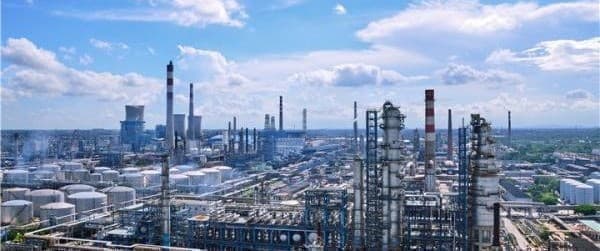Emission reduction has become nothing short of a mantra these days. Carbon dioxide still receives the most attention, although methane has also been getting headlines lately as the powerful greenhouse gas that it is. So Big Oil has been forced to make emission cut commitments. But they won’t be enough. Big Oil majors have been vocal about climate change and their ambitions to help arrest global warming lately. One after another, Europe’s Big Oil has declared emission-related plans that many have seen as more of a reputation management effort than a real commitment. So Carbon Tracker, the nonprofit that researches the effect climate change is having on financial markets, ranked them.
Unsurprisingly, the European supermajors did better than the U.S. supermajors, but not all of them--at least according to Carbon Tracker’s set of what it calls Hallmarks of Paris Compliance. But even they did not all do equally well. In fact, of all the European heavyweights, BP was the only actual supermajor who found a place in the top three, along with Spain’s Repsol and Italy’s Eni. Shell and Total both ranked in the so-called second tier because their climate change plans turned out to be not ambitious enough.
A little bit about the methodology. Carbon Tracker formulated a set of three points on which the think-tank based its evaluation, including having absolute emission cut targets rather than emission intensity reduction targets, and targeting full lifecycle emissions to cut rather than only Scope 1, 2 or 3 emissions. The last hallmark is called full equity share, meaning the emission reduction targets cover all the production company has, across all its business units.
Related: Is Nuclear Energy Making A Pandemic Comeback?
On all of these, Exxon, Chevron, and Conoco performed the worst, which should hardly come as a surprise given the widening divide between European and U.S. supermajors on climate change and their response to it. Exxon even recently drew the ire of a former senior employee, who filed a complaint against the company for refusing to announce writedowns on the value of XTO Energy, a gas producer that Exxon bought ten years ago. The company has also steadfastly refused to undertake any emission reduction commitments.
Chevron and Conoco have agreed to cut emissions, but Carbon Tracker has criticized them for only focusing on the carbon intensity of its own operations—while BP and Eni, for instance, also target emissions produced by their clients while using their products. And that their reduction targets are more or less ridiculous, at about 3 percent, according to the think-tank.
But here’s the thing. Teacher’s pets or bad oil boys, all Big Oil will have trouble getting where Carbon Tracker and the signatories of the Paris Agreement want them to be in 2050. Because, according to the International Energy Agency, the world needs a major boost in clean energy innovation to achieve the Paris Agreement goals.
In a report titled Clean Energy Innovation, the agency, which has become one of the most vocal proponents of renewable energy in recent years, said that the job of emission reduction does not lie squarely in Big Oil’s field. As shocking as this may come to some, there appear to be industries where there are limited ways of cutting emissions without new technological solutions.
Related: Permian Leads Recovery As Frackers Ramp Up Activity After Oil Crash
“Energy efficiency and renewables are fundamental for achieving climate goals, but there are large portions of emissions that will require the use of other technologies,” the IEA said in its report. “Much of these emissions come from sectors where the technology options for reducing them are limited – such as shipping, trucks, aviation and heavy industries like steel, cement and chemicals. Decarbonising these sectors will largely demand the development of new technologies not yet in use. And many of the clean energy technologies available today need more work to bring down costs and accelerate deployment.”
In other words, all the commitments that Eni, BP, Shell, and Total have made may well be valid and commendable, but they will not be enough for the wider decarbonization of the global economy without some hefty investment in new technologies for decarbonizing said economy. And even if that investment is made available to those busy innovating immediately, not all of the necessary technology will be ready for deployment soon enough.
The report is not optimistic in these outtakes. But perhaps the most important outtake is that we cannot simply repeat the mantra of CO2 and how oil companies must make it disappear, one way or another. Decarbonization appears to be a much more complex undertaking than “Keep it in the ground”. And knowing that just a quarter of the technology necessary for the transition to net-zero is currently mature or about to be mature in the observable future makes it painfully clear just how complex an undertaking it would be.
Ranking the producers of fuels that generate the emissions is appropriate as is criticizing them for not being ambitious enough in cleaning up their act. It may, however, be time to spread the responsibility a bit. This way, more resources would be deployed to tackle climate change and emissions.
By Irina Slav for Oilprice.com
More Top Reads From Oilprice.com:
- Oil Prices Hit Four-Month High On Vaccine Hopes
- Is The EU's Historic Green Stimulus Plan Ambitious Enough?
- The Beginning Of The End For Gas Flaring

















